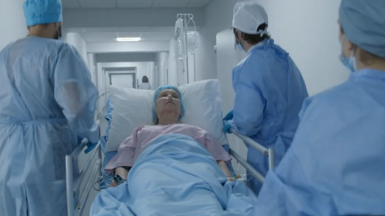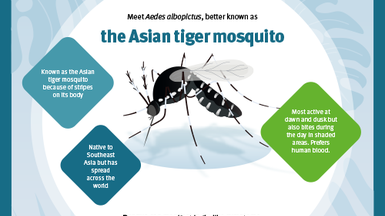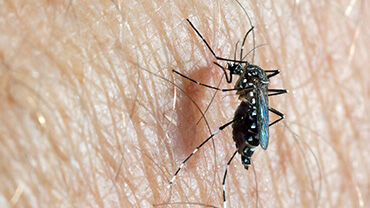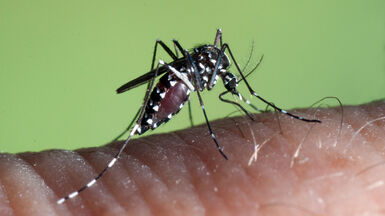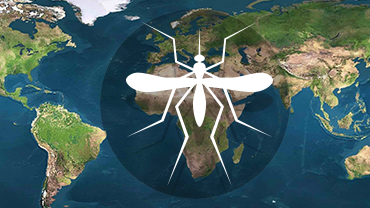Dengue
Dengue fever is a viral disease transmitted by certain types of mosquitoes. It usually starts with flu-like symptoms such as:
- fever
- headache
- muscle and joint pain
- rash
Symptoms appear in humans 3-14 days after infection.
In some cases, the disease can become severe, leading to conditions like dengue hemorrhagic fever and dengue shock syndrome. When the disease is severe, the risk of mortality is higher. There are four types of viruses that cause dengue, and being immune to one type does not protect against the others.
Dengue outbreaks are sometimes seen in southern Europe and consequently it is closely monitored in the region..
Around the world, dengue is the most common viral disease transmitted by mosquitoes that affects people. Every year, there are tens of millions of cases are reported, and it causes about 20 000 to 25 000 deaths, with a higher impact on children.
Dengue is a disease caused by a virus that mainly spreads through mosquito bites. Mosquitoes get the virus by biting infected people and can transmit it to others when they bite again.
There is no specific treatment for dengue. Early diagnosis is crucial to enable the provision of appropriate supportive care to patients and to apply disease control measures in the area.
There are two vaccines available in the EU/EEA for protection against dengue: Dengvaxia (by Sanofi Pasteur) and Qdenga (by Takeda GmbH). The use of these vaccines should be in accordance with official recommendations.
For individuals, protective measures include:
- using mosquito repellent
- the use of mosquito nets
- sleeping or in screened or air-conditioned rooms
- wearing clothing that covers most of the body.
Preventative measures also focus on controlling the mosquitoes that spread the virus.
Some ways to reduce mosquito breeding sites include:
- Regularly removing or treating open containers with stagnant water, like flower pots, tires, tree holes, and rock pools.
- Ensuring water containers, barrels, wells, and storage tanks are well covered.
During outbreaks, aerial spraying of insecticides can be used to get rid of adult mosquitoes and mitigate the spread of the disease.

